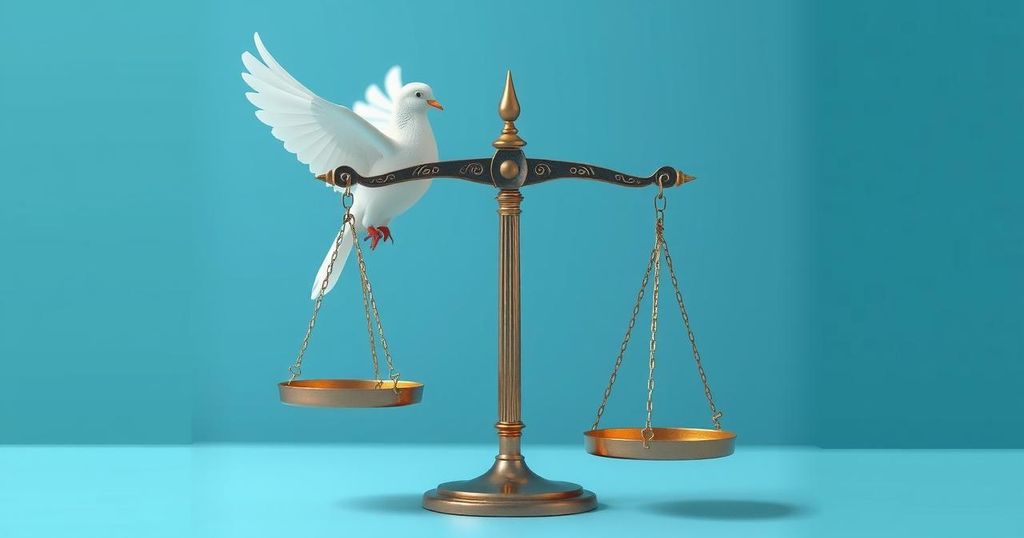Israel will send a delegation to Doha to negotiate hostage releases. The initiative follows an invitation from Egypt and Qatar, supported by the U.S. Meanwhile, tensions arise due to U.S.-Hamas talks, with Hamas demanding conditions for cease-fire extensions. The negotiations involve discussions about prisoner exchanges and concerns regarding Israel’s sidelining in the process.
On Monday, Israel will send a delegation to Doha to facilitate negotiations concerning the release of hostages detained in Gaza. This initiative follows an invitation from Egypt and Qatar, with the support of the United States. The decision comes amid rising tensions concerning U.S. interactions with Hamas, which Israel fears might occur without its involvement.
The Israeli delegation is composed of high-ranking officials, including a senior Shin Bet representative, Political Advisor Ophir Falk, and IDF and Mossad members. It aims to advance the framework proposed by U.S. envoy Steve Witkoff and to address rising concerns within Israel regarding direct negotiations between the U.S. and Hamas.
Speculations arose when reports emerged claiming agreements between Israel and Hamas to extend a temporary cease-fire throughout Ramadan, though both entities denied these assertions. Reports indicate that Hamas might agree to a two-month extension of the cease-fire while releasing hostages, including Israeli soldiers, in stages.
Adam Boehler, the hostages envoy for the Trump administration, has been actively engaged in discussions with Hamas over the weekend. The current negotiations allegedly focus on releasing fewer hostages initially while extending the cease-fire through Ramadan and Passover.
Reports indicate that U.S. officials are pushing for an arrangement involving the release of one Israeli-American soldier and the bodies of four other Israeli citizens. In exchange, Hamas seeks the release of hundreds of Palestinians from Israeli prisons, banking on the U.S. proposing to liberate 250 prisoners, with contentious veto rights negotiations ongoing between Israel and Hamas.
Concerns are growing within Israel about being sidelined in the U.S.-Hamas negotiations, as reports suggest that American officials maintain optimism regarding these talks. Israeli sources have disputed this optimism, voicing their concerns that effective results remain unachieved amidst a diplomatic rift.
Tensions were further escalated following a heated exchange between Israeli Minister Ron Dermer and Adam Boehler after news of Boehler’s meeting with Hamas leadership emerged. The incident underscored the growing friction between Israel and the U.S. over direct negotiations with Hamas.
A senior U.S. official acknowledged Israel’s misgivings about direct U.S. communications with Hamas but expressed the importance of informing Israel at each step. The deliberations have been ongoing for over three weeks, reflecting the urgency in resolving the hostage crisis.
Israeli officials suggest that resolving this crisis is integral to Trump’s broader ambition to expand the Abraham Accords, noting the administration’s determination to advance its objectives despite internal political challenges within Israel. A Hamas delegation, reportedly provided with an American proposal, has arrived in Cairo, and further negotiations are anticipated with mediators.
Hamas spokesman Hazem Qassem reiterated their demands for future negotiations, insisting on prisoner exchanges and a complete Israeli withdrawal from Gaza, while emphasizing the importance of a serious approach from Israel in these discussions. He also indicated that Hamas remains open to engaging with U.S. representatives, provided it aligns with a comprehensive agreement regarding the bilateral relations.
In conclusion, Israel’s forthcoming delegation to Qatar signifies a crucial step towards resolving the hostage situation in Gaza amidst heightened tensions in U.S.-Hamas negotiations. The complexities surrounding the proposed cease-fire extensions, prisoner exchanges, and the differing positions of the involved parties illustrate the intricate dynamics at play. Increasing diplomatic interactions between the U.S. and Hamas may impact the broader geopolitical landscape, necessitating careful navigation from Israeli officials to safeguard their interests.
Original Source: www.ynetnews.com




